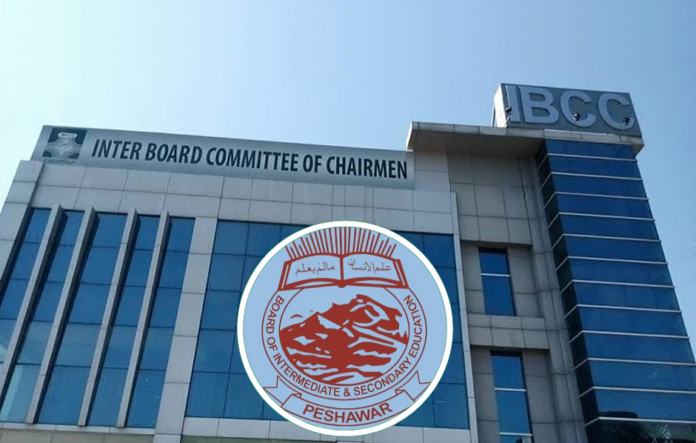In a major advancement aimed at making the IBCC attestation process more efficient, the Inter Boards Coordination Commission (IBCC) is working to integrate its online attestation portal with the databases of various educational boards across Pakistan. This will enable the direct verification of academic records, streamlining the entire process for students.
According to a press release issued by IBCC, several key educational boards, including the Federal Board of Intermediate and Secondary Education (FBISE), Baluchistan Board of Intermediate and Secondary Education (BBISE), and multiple boards from Punjab, have already been connected to the system.
Another significant milestone was reached when IBCC signed a Memorandum of Understanding (MoU) with the Board of Intermediate and Secondary Education (BISE) Peshawar, enabling direct access to BISE Peshawar’s database via read-only API access.
The MoU, signed by Dr. Ghulam Ali Mallah, Executive Director of IBCC, and Prof. Nasrullah Khan Yousufzai, Chairman of BISE Peshawar, marks a key step toward modernizing the IBCC attestation process.
This agreement will eliminate the need for students to physically visit BISE Peshawar for document verification, which was previously required in a sealed envelope for IBCC attestation. This development is expected to pave the way for other educational boards in Khyber Pakhtunkhwa (KPK) to join the IBCC portal, further benefiting students across the province.
“This initiative will save students both time and money by providing online verification services,” said Dr. Ghulam Ali Mallah. He emphasized that the online IBCC attestation system will reduce commute costs and streamline the process, allowing students to verify their documents digitally without hassle. Prof. Nasrullah Khan added that BISE Peshawar will serve as a guiding body for other boards in KPK to adopt similar technical advancements, benefiting students throughout the region.
In addition, BISE Peshawar’s IT team presented a Feedback Mechanism tool designed to help authorities make data-driven decisions and identify areas for improvement in the attestation process. Dr. Mallah also noted that he plans to share the progress of BISE Peshawar with other members of the IBCC forum, encouraging them to implement similar innovations in their respective boards.
This initiative represents a significant step toward modernizing education-related services, making it easier for students to focus on their academic and career goals without the added burden of complicated administrative processes.
The International Conference on Pakistan Education System Challenges and Opportunities was recently held at COMSTECH, organized by the Manhattan Strategy Group (MSG). This event gathered both local and global perspectives to address Pakistan’s pressing educational issues. Inaugurated by Prof. Ahsan Iqbal, Federal Minister for Planning, the conference highlighted the importance of the diaspora in fostering national development. Prof. Iqbal stressed the need for teacher training in artificial intelligence and digital education. The conference revealed that 26.2 million children are out of school, with 53% being girls, emphasizing the urgent need for collaboration to address these challenges.


